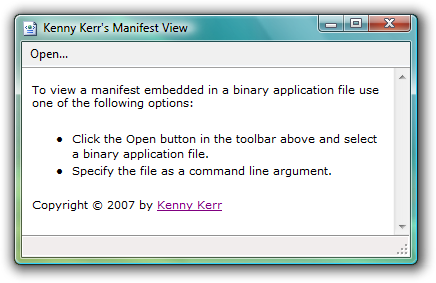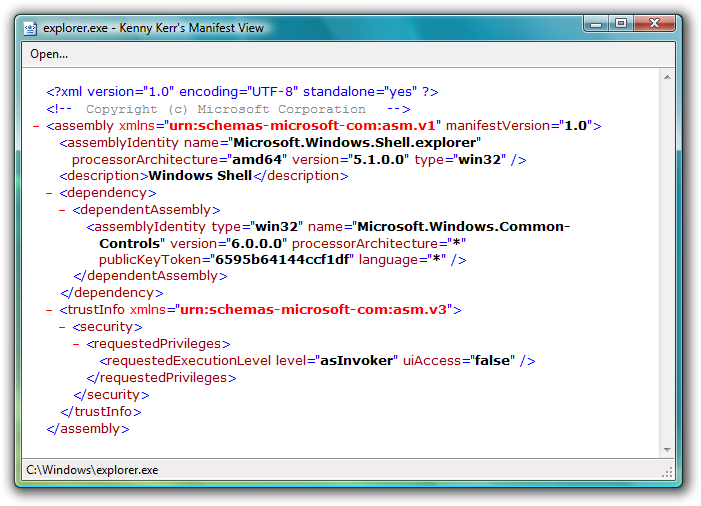Manifest View 1.0
Every so often I need to view an application’s manifest, for example to debug application dependencies or to confirm the requested execution level. This usually involves opening up the binary application file in Visual Studio and exporting the RT_MANIFEST resource to a text file that I then open in Notepad. Needless to say this is very tedious. Well tonight I had enough of this and whipped up this little tool.

Manifest View simply reads the manifest embedded in the selected file and displays it in a browser control. It’s simple but effective. It also automatically reloads the manifest when the Manifest View window receives the input focus. This is useful if you’re viewing a manifest and then switch to Visual Studio to rebuild and then switch back to view the changes.

You can download Manifest View 1.0 here. It works on both x86 and x64 editions of Windows and can read manifests embedded in either 32-bit or 64-bit PE files. It does however require the .NET Framework 2.0 to run.
Update: build 1.0.0.2 adds support for x64 editions of Windows XP and Windows 2003.
Update: build 1.0.0.3 adds support for DLLs.
Enjoy!
© 2007 Kenny Kerr